Safaricom Ethiopia was officially launched on Thursday morning by switching on its mobile telecommunications network and services in neighboring Ethiopia’s capital city Addis Ababa.
At the time of the launch, Safaricom Ethiopia had rolled out 2G, 3G and 4G mobile services in 11 cities, including in Addis Ababa and Ethiopia’s second largest city, Dire Dawa through its 5G-enabled network.
The new entrant into the Ethiopian telecomms market plans to roll out services in at least 25 cities by April 2023 to reach 25 per cent of the population, a requirement in its licence.
Safaricom Ethiopia CEO Anwar Soussa revealed that the new telecommunications service provider had so far amassed a customer base of 200,000 subscribers in nine towns in its initial three weeks of operation.
Soussa says the telcos has so far spent $300 million in the business’ network expansion this year and will spend a similar amount yearly for the next three years to ensure sustainability.
Read More
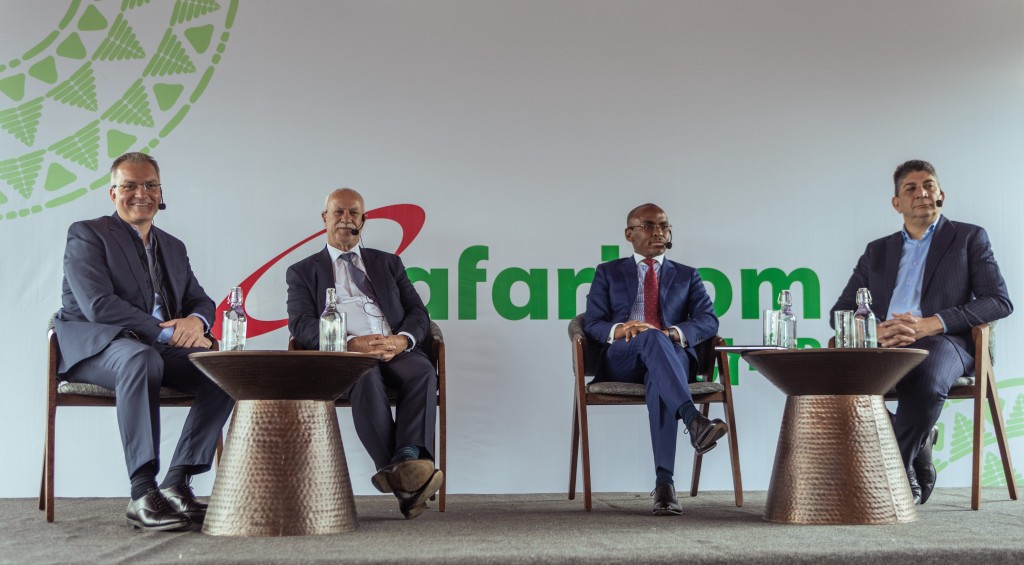
Safaricom Ethiopia says it has signed infrastructure-sharing and interconnection deals with state-owned Ethio Telecom as it invests in building its wholly-owned mobile network.
However, Safaricom PLC CEO Peter Ndegwa revealed they are in talks with the Ethiopian government and regulators towards operating mobile financial services in the country.
Ndegwa says a lot of progress had been made and that the firm was pursuing using a consortium to operate the service and they will give details on the rollout timelines once they secure the license to operate the M-Pesa-type financial service in Ethiopia.
“For two decades, Safaricom PLC has combined the power of technology and our innovative spirit to solve customer and societal challenges. Led by our Purpose to Transform Lives, we have deepened digital and financial inclusion in Kenya by connecting people to people, people to opportunities and people to information,” said Ndegwa.
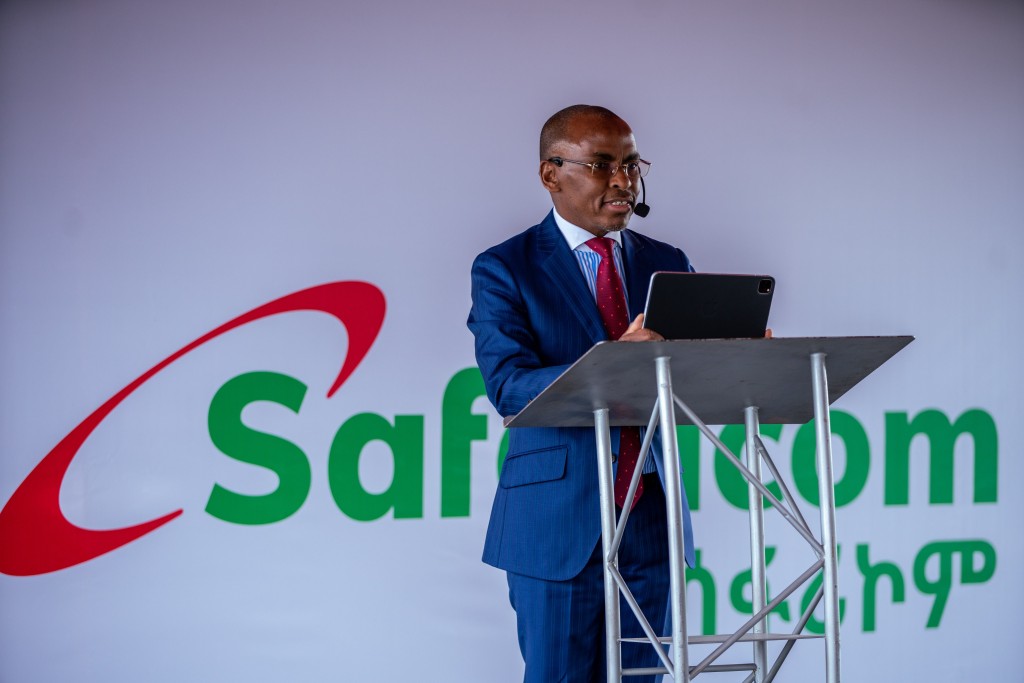
He added: “With these lessons and experiences, we look forward to positively impacting the people of Ethiopia with a sustainable and quality mobile network that will be a vital launch pad for nationwide digital telecommunications services to over 118 million Ethiopians."
Safaricom Ethiopia is owned by an international consortium consisting of Vodafone Group, Safaricom PLC, Vodacom Group, Sumitomo Corporation and British International Investment (BII).
“We are excited to be part of this highly experienced international consortium, with a strong vision to advance Ethiopia’s inclusive digital society, with clear goals to deliver greater prospects for education, jobs and prosperity,” Vodafone Group CEO Nick Read said.
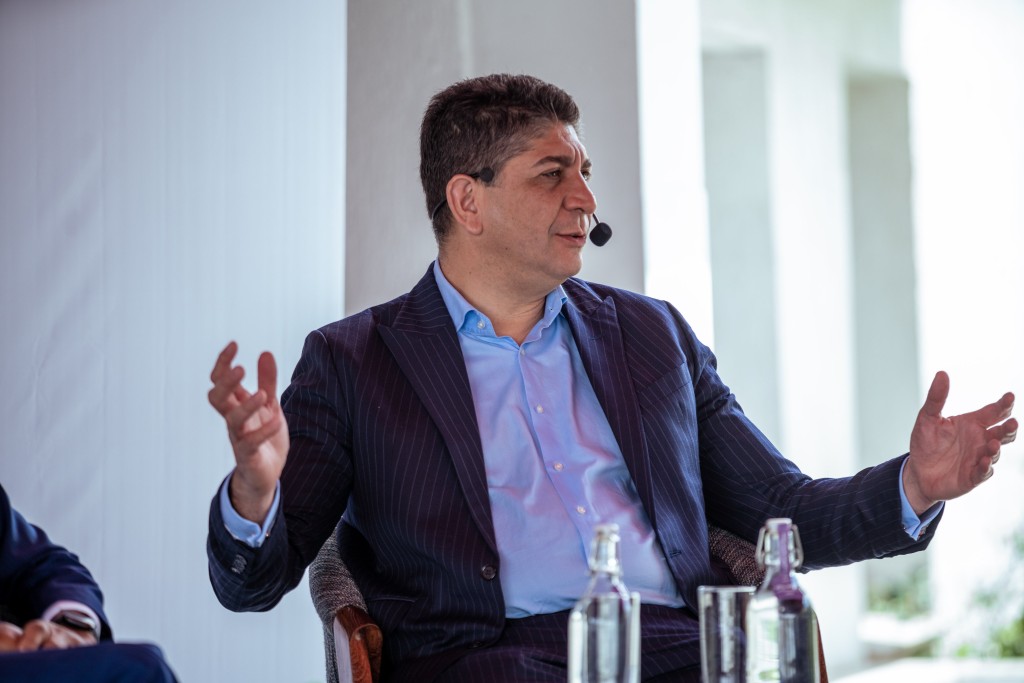
Joosub lauded the Ethiopian government for enabling the historic moment to happen.
“The Global Partnership for Ethiopia consortium has worked tirelessly together with the Government of Ethiopia to reach this exciting moment in Ethiopia’s history as the country embarks upon a fully digitalised era. Ubiquitous network connectivity will positively transform the lives of Ethiopians throughout the country, notably by making various Tech for Good solutions and services available in health, education, manufacturing, agriculture and digital finance,” said Vodacom Group CEO Shameel Joosub.
Ethiopia launched the Digital Ethiopia 2025 to help the East African country to realise its digital potential and leverage technology to build a more prosperous society.
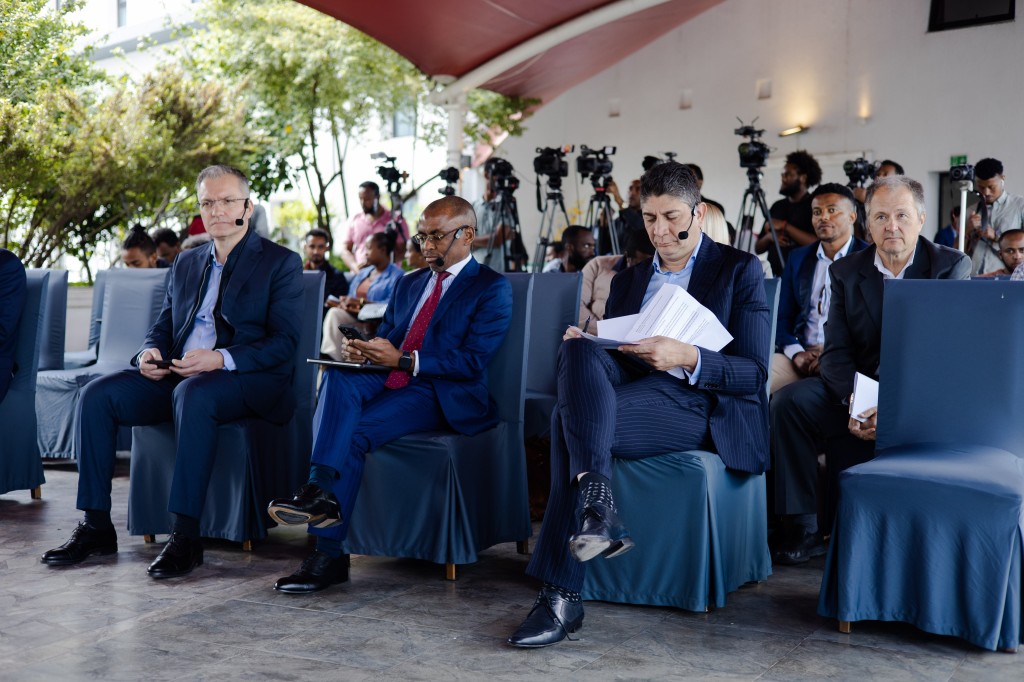
As part of that process, Safaricom Ethiopia was granted a nationwide full-service Unified Telecommunications Service Licence making it the first company to compete with the state-owned Ethio Telecom.
“With the expansion of mobile phone use and the economic and human resource development, we will transform lives for a digital future, in line with the Digital Ethiopia 2025 strategy,” said Toshikazu Nambu, Representative Director, Executive Vice President, Chief Digital Officer, Sumitomo Corporation.
Nick O’Donohoe, Chief Executive of BII, added: “The launch of Safaricom Ethiopia will deliver development impact at a country-wide level. It will transform the economic prospects for millions of Ethiopians and go a long way to alleviating data-poverty in the country.”

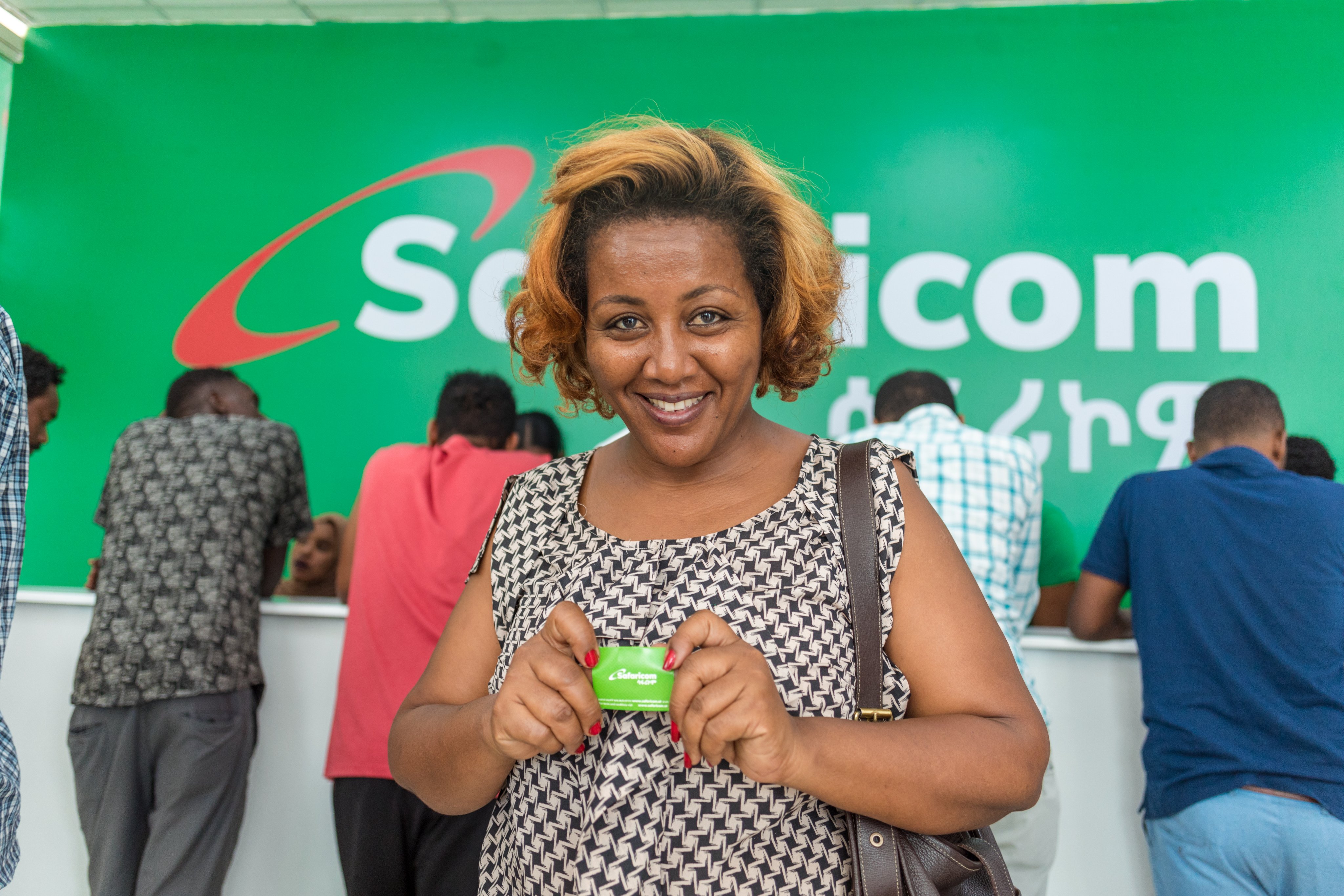
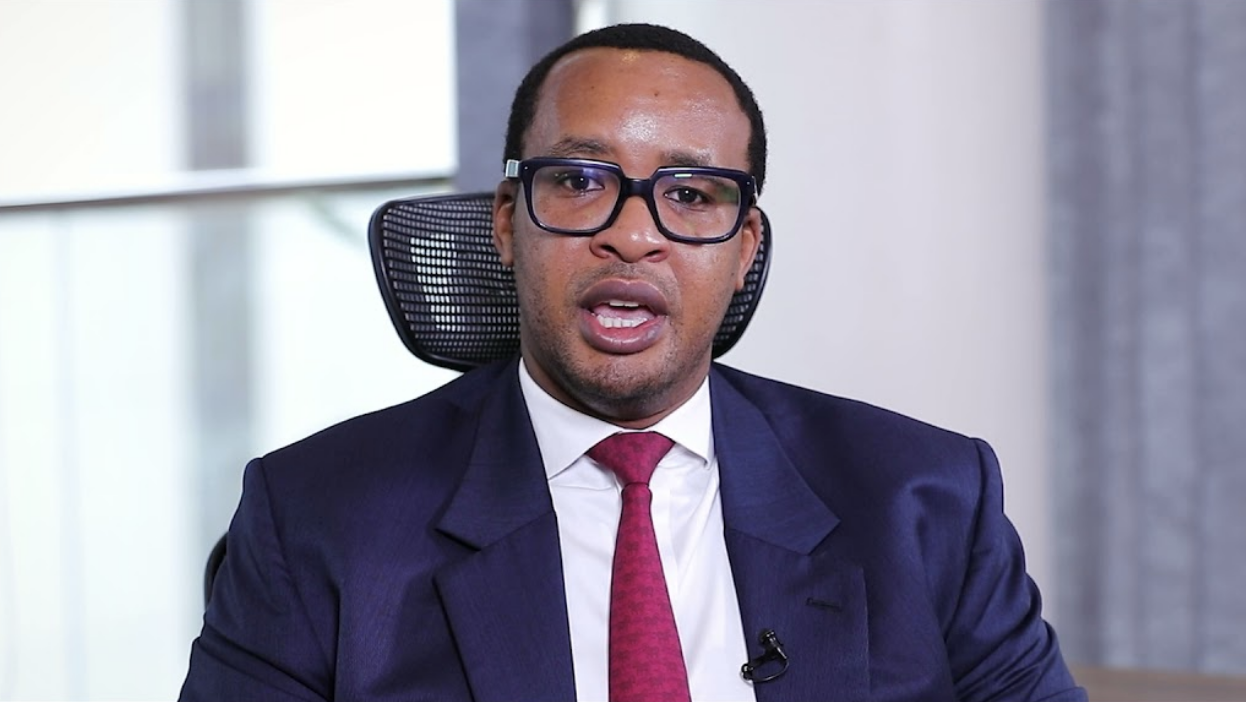


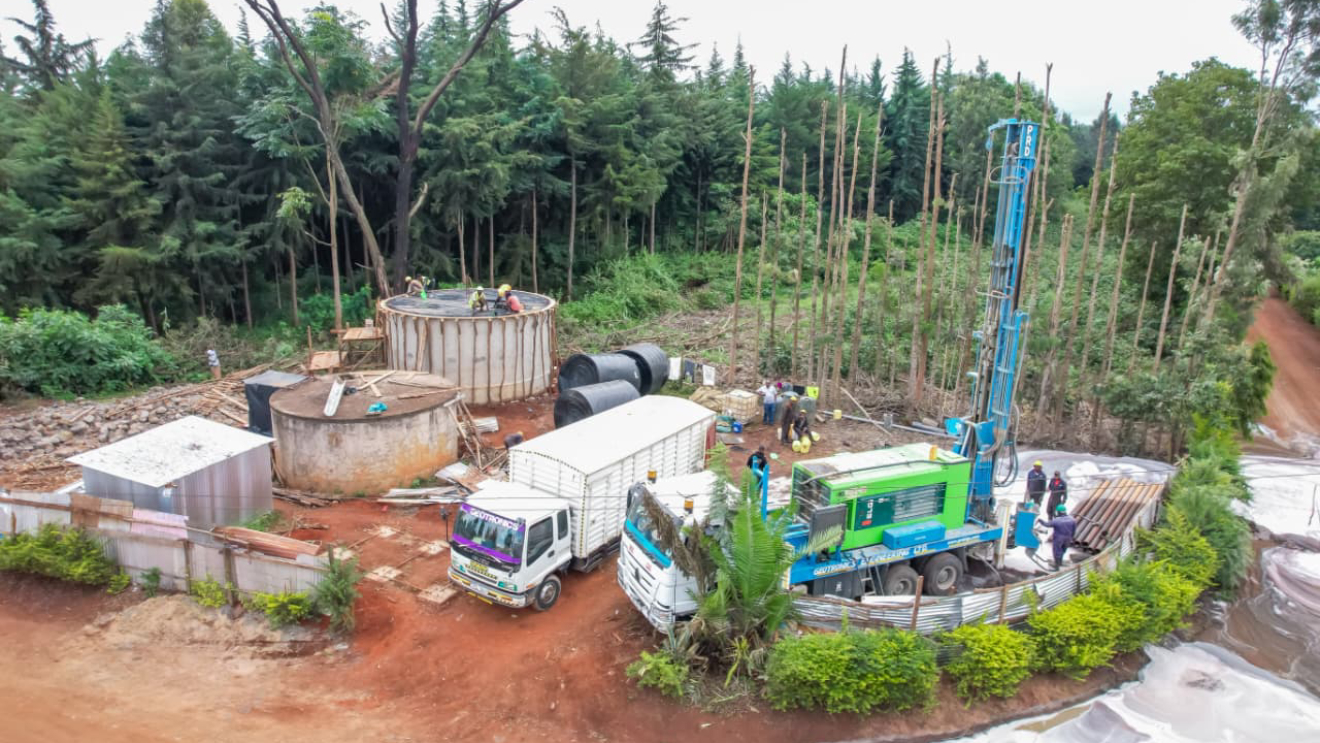

 shares a light moment with the company's Group CEO Dr Patrick Tumbo (right) at a past event-1758121528.jpeg)